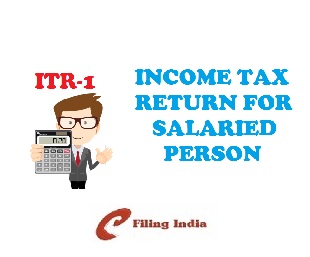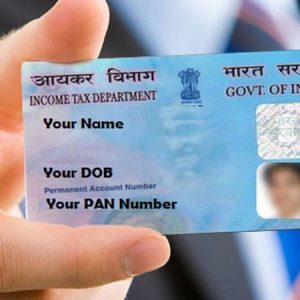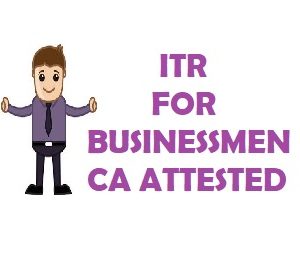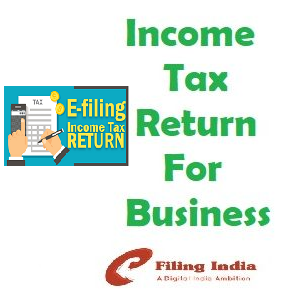Description
What Is Included In Our Package?

Drafting Documents

Return Filing

Return Processing

Completion of Return
Documents Required for Salaried ITR
ITR Docs
ITR Docs
- Mobile No and Email Address.
- PAN of Applicant. along with any One Address Proof (Voter ID, Passport, Driving License, Aadhaar).
- Bank Account details – Bank Statement For Respective F.Y. or Bank Passbook Copy.
- Life Insurance- Like LIC, etc.
- Mediclaim.
- Tution Fees of Children.
- Rent of Residence Address.
- All Loan Schedule.
- Form 16 or 16A.
What Is In Our Package?
- ITR Acknowledgement.
- Computation.
[su_heading]Frequently Asked Questions[/su_heading]
Income tax definition and common terms
[su_spoiler title=”What is Income Tax?” style=”fancy” anchor=”What is Income Tax?”]Income tax is tax levied on the income of a person by the Government of India as per the provisions contained in the Income Tax Act 1961. It is levied on income earned during the year starting from 1 April and ending 31st March.[/su_spoiler]
[su_spoiler title=”What is Income Tax?” style=”fancy” anchor=”What is Income Tax?”]Income tax is tax levied on the income of a person by the Government of India as per the provisions contained in the Income Tax Act 1961. It is levied on income earned during the year starting from 1 April and ending 31st March.[/su_spoiler]
[su_spoiler title=”Who is liable to pay Income tax?” style=”fancy” anchor=”Who is liable to pay Income tax?”]Every person is liable to pay tax in India if his total income is more than the income notified by the government in the slab rates. Here, the definition of person includes:
- An Individual
- A Hindu Undivided Family (HUF)
- A Company
- A Firm
- An Association of Persons (AOP) or a Body of Individuals (BOI)
- A Local Authority
- Artificial Juridical Persons[/su_spoiler]
[su_spoiler title=”On what amount is income tax calculated?” style=”fancy” anchor=”On what amount is income tax calculated?”]For calculating income tax, notified slab rates are applied to the taxable incomeof a person earned during previous year. Taxable income is to be calculated asper the provisions and rules contained in the Income Tax Act, 1961. One has to calculate income under various heads of Income and net them after deducting deductions available under Chapter VI-A to get Net Income Chargeable to Tax.[/su_spoiler]
[su_spoiler title=”How do I make the payment of income taxes to government?” style=”fancy” anchor=”How do I make the payment of income taxes to government?”]The payment of income taxes can be made to the government by either physical mode i.e. cash/cheque in any designated bank branch or e-payment on NSDL website. Payment is to be made in Challan 280 in both the cases. The challan is to be filled very carefully as its accuracy is important for further processing.[/su_spoiler]
[su_spoiler title=”What is Income tax Return?” style=”fancy” anchor=”What is Income tax Return?”]An Income Tax Return is a statement of income earned to calculate tax liability and payment or refund of taxes. Thus, the purpose of filing the return is to report our income and taxes paid thereon to the government.[/su_spoiler]
[su_spoiler title=”Who is required to file Income Tax Return?” style=”fancy” anchor=”Who is required to file Income Tax Return?”]Any person whose income exceeds the basic exemption limit as specified in the Income Tax Act,1961 is required to file an Income Tax Return. Now, the basic exemption limit changes from year to year. At present the limit is Rs. 2,50,000 for individuals of less than 60 age, Rs. 3,00,000 for individuals in the age bracket
of 60-80 years, and Rs. 5,00,000 for individualcompulsory to file an income tax return if any of the condition is applicable toyou:
- If your taxable income is more than slabs notified in Finance Act for that Year. Example for an Individual Resident below 60 years of Age the Slab is 2,50,000 /-(A.Y. 2017-2018) and for senior citizen it is 3,00,000. Thus if his income is more than 2,50,000/- ( or 3,00,000 in case of senior citizen) then it is mandatory for him to file Income Tax Return.
- If you are an entity registered as a firm or a company, irrespective of the income or loss during the year.
- If you have losses under any head and want to carry forward those losses to next year.
- If you want to claim refund of taxes already paid i.e., TDS, Advance Tax etc.
- If you are a resident individual holding any kind of Foreign Asset e.g. Immovable property, Bank account etc. or are a signing authority in a foreign bank account then you are compulsorily required to file the return.[/su_spoiler]
Types of ITR returns
[su_spoiler title=”Which Income Tax Return form is applicable to me?” style=”fancy” anchor=”Which Income Tax Return form is applicable to me?”]The type of return form in which you should file your return varies as per the category of Assessee.
- For Individuals/HUF: ITR-1, ITR-2, ITR-3, and ITR-4
- For Company: ITR-6, ITR-7
- For other than Individuals and Company: ITR-5
You just need to fill the details relevant to you and eFilingIndia will itself generate the correct XML.[/su_spoiler]
[su_spoiler title=”If I am an individual, which return form should I file?” style=”fancy” anchor=”If I am an individual, which return form should I file?”]On the basis of source of Income an Individual can file return in form ITR-1, ITR-2, ITR-3 and ITR-4:
- ITR 1: Salaried Individuals not having capital gain, income from business or profession, income from more than one house property and income from maintaining and owning race horses.
- ITR 2: Salaried individuals/HUF having income from business or profession from a Partnership Firm.
- ITR 3: An individual/HUF having income from business or profession from a Proprietorship Firm.
- ITR 4: An individual/HUF opting for Presumptive Taxation Scheme.[/su_spoiler]
[su_spoiler title=”Who can file IT return in ITR-1?” style=”fancy” anchor=”Who can file IT return in ITR-1?”]You can file return in ITR-1 (Sahaj) if you are an Individual having
- Income from other sources
- Salary
- Pension
- Income from up to one house
- Agriculture Income less than Rs. 5,000
- Total Income is less than Rs. 50 lakh[/su_spoiler]
[su_spoiler title=”Who can file return in ITR-2?” style=”fancy” anchor=”Who can file return in ITR-2?”]You can file return in ITR-2 if you are an Individual or HUF having:
- Income from items in ITR 1 which is more than Rs. 50 lakh
- Income from capital gains
- Foreign Income
- Agricultural Income more than Rs. 5,000
- Income from Business or Professionunder a Partnership firm.[/su_spoiler]
[su_spoiler title=”Who can file return in ITR-3?” style=”fancy” anchor=”Who can file return in ITR-3?”]You can file return in ITR-3 if you are an Individual or HUF having:
- Income from items mentioned in ITR 2
- Income from Business or Profession under a Proprietorship Firm[/su_spoiler]
[su_spoiler title=”Who can file return in ITR-4?” style=”fancy” anchor=”Who can file return in ITR-4?”]You can file return in ITR-4 (Sugam) if you are an Individual or HUF having:
- Section 44AD – Business (Deemed Profit-8% or 6%)
- Section 44ADA –Profession(Deemed Profit-50%)
- Section 44AE – Transporters (Deemed Profit- Rs. 7500/vehicle per month)[/su_spoiler]
[su_spoiler title=”who can file ITR-5?” style=”fancy” anchor=”who can file ITR-5?”]You can file return in ITR-5 if you are an Individual or HUF having:
- Firm
- Limited Liability Partnerships
- Association of Person
- Body of Individuals
- Artificial Juridical Persons
- Local Authority or Co-operative Society[/su_spoiler]
ITR return filing process
[su_spoiler title=”How to file my Income Tax Return?” style=”fancy” anchor=”How to file my Income Tax Return?”]The return can be filed both physically & electronically. For e-filing download the government utility from Income tax portal (in excel format or java utility). Complete all the fields and information required, pay the tax due and generate the xml. You can upload this xml on government portal by logging into your account. Once the xml is uploaded download the acknowledgement in ITR-V. This ITR-V can either be verified using EVC code or can be couriered to CPC Bangalore for further processing. OR you can simply use the LegalRaasta return filing software for filing return in less than 5 mins and uploading them directly on the government portal.[/su_spoiler]
[su_spoiler title=”Is having PAN (Permanent Account No.) mandatory for income tax return filing?” style=”fancy” anchor=”Is having PAN (Permanent Account No.) mandatory for income tax return filing?”]Yes, a person must have PAN in order to proceed for filing of income tax return.[/su_spoiler]
[su_spoiler title=”What are the benefits of filling income tax returns (ITR)?” style=”fancy” anchor=”What are the benefits of filling income tax returns (ITR)?”]Filing of ITR is basically a legal obligation which everyone who falls under is required to comply with. But, it also helps in getting bank loans, visas, for claiming refund against excess income tax paid, as a proof of income certificate and most importantly for tax payer’s self-satisfaction.[/su_spoiler]
[su_spoiler title=”Do I need to attach any documents with my IT return?” style=”fancy” anchor=”Do I need to attach any documents with my IT return?”]No, documents are not required to be attached with the return. However one should preserve these documents as proof in case demanded by tax authorities.[/su_spoiler]
[su_spoiler title=”What is 26AS? Is it required to file income tax return?” style=”fancy” anchor=”What is 26AS? Is it required to file income tax return?”]26AS is a consolidated statement showing the tax credit associated with our PAN. It shows how much tax has been received by government by way of TDS deposited by deductor (employer, bank) on our behalf, Advance tax deposited by us, self-assessment tax deposited etc. It is important to match tax payments and TDS deducted with 26AS before filing your income tax return to get tax credit as we can take tax credit of only those items appearing in our 26AS.[/su_spoiler]
[su_spoiler title=”How can I view my 26AS?” style=”fancy” anchor=”How can I view my 26AS?”]26AS can be viewed only by those taxpayers who are registered on Income tax Portal. User is redirected to traces portal when he makes a request to view 26AS. The statement can be viewed and downloaded for the selected Assessment year. LegalRaasta automatically fetches information from your 26AS form.[/su_spoiler]
[su_spoiler title=”I have already paid my taxes. Do I still need to file my return?” style=”fancy” anchor=”I have already paid my taxes. Do I still need to file my return?”]Yes, return filing is mandatory if your taxable income is above the slab irrespective of whether taxes have been paid or not. You can claim benefit of tax credit or get refund only if your return is filed.[/su_spoiler]
[su_spoiler title=”What are the due dates for filing income tax return?” style=”fancy” anchor=”What are the due dates for filing income tax return?”]
| Type of Tax Payer | Due Date |
|---|---|
| Company | 30th September |
| Persons whose accounts are required to be Audited u/s 44AB | 30th September |
| Working Partner in a firm (where firm’s accounts are required to be audited) | 30th September |
| Individuals, HUF,AOP,BOI etc. whose accounts are not required to be audited u/s 44AB | 31st July |
[/su_spoiler]
[su_spoiler title=”What if I fail to submit my income tax return on time?” style=”fancy” anchor=”What if I fail to submit my income tax return on time?”]The return can be submitted after due date u/s 139(4). An assessee who fails to file return within due date will have to pay interest u/s 234A.[/su_spoiler]
[su_spoiler title=”Within what time can belated or late return be filed?” style=”fancy” anchor=”Within what time can belated or late return be filed?”]The belated return can be filed on or before 31st March of the relevant Assessment Year.[/su_spoiler]
[su_spoiler title=”What to do if a mistake is made in filing the return?” style=”fancy” anchor=”What to do if a mistake is made in filing the return?”]If any error is discovered after the return is filed then return can be revised u/s 139(5). Revised Return of Income Tax can be filed by an assessee any time before the end of the relevant assessment year or before the completion of the assessment, whichever is earlier.[/su_spoiler]
ITR presumptive taxation
[su_spoiler title=”What is Presumptive Taxation under income tax return?” style=”fancy” anchor=”What is Presumptive Taxation under income tax return?”]With an objective to give relief to small taxpayers having income from business or profession from maintaining books and accounts presumptive taxation scheme was introduced in Income Tax Act, 1961. This section gives exemption to taxpayers opting for this scheme from maintaining books, audit, paying quarterly advance tax. The scheme is framed under three section of Income tax act 1961:
- Section 44AD : For small taxpayers engaged in business other than business of plying, hiring or leasing goods carriages
- Section 44ADA: For small taxpayers having income from profession.
- Section 44AE: For small taxpayers engaged in business of plying, hiring or leasing goods carriages.
[/su_spoiler]
[su_spoiler title=”Are professionals opting for presumptive income scheme required to maintain
books of accounts?” style=”fancy” anchor=”Are professionals opting for presumptive income scheme required to maintain books of accounts?”]No, professionals who opts for presumptive scheme are not required to maintain books of accounts. Thus they are exempt from requirements of section 44A which requires them to maintain books.[/su_spoiler]
[su_spoiler title=”How to calculate taxable income of persons declaring income under section 44ADA of presumptive income scheme?” style=”fancy” anchor=”How to calculate taxable income of persons declaring income under section 44ADA of presumptive income scheme?”]Persons who are engaged in profession that is eligible for presumptive taxation scheme u/s 44ADA and whose turnover does not exceed 50 lakhs can opt for presumptive taxation scheme. Such persons will have to declare 50% or a higher percentage of gross turnover or gross receipts as taxable income. No expenses will be allowed further. This amount will be chargeable to tax under the head “Profits and gains of business or profession”. Assesse can declare higher profits but it cannot be less than 50% of gross turnover.[/su_spoiler]
[su_spoiler title=”Can expenses be claimed under presumptive income scheme?” style=”fancy” anchor=”Can expenses be claimed under presumptive income scheme?”]No, a person cannot claim additional expenses under presumptive taxation scheme as income computed as per this section at 8% ( in case of business) or 50% (in case of professionals) is final taxable income. It is deemed that all expenses have been adjusted in computing this final taxable income.[/su_spoiler]
[su_spoiler title=”In which form should income tax return be filed for presumptive scheme?” style=”fancy” anchor=”In which form should income tax return be filed for presumptive scheme?”]If any assesse who is eligible for presumptive taxation scheme opts for it then he should file his return in ITR-4.[/su_spoiler]
[su_spoiler title=”What is the limitation of opting out of presumptive taxation scheme?” style=”fancy” anchor=”What is the limitation of opting out of presumptive taxation scheme?”]An assessee opting for presumptive taxation scheme should continue the same scheme for next five assessment years. If he fails to file income tax return, he cannot opt for presumptive scheme again for next five Assessment years.[/su_spoiler]
INCOME TAX RETURN PROCESS
[su_row][su_column size=”1/3″][su_box title=”Document Collection” style=”soft” box_color=”#a6b3a0″]eFilingIndia Income Tax Expert will collect the necessary information and documents for preparation of income tax return. [/su_box][/su_column] [su_column size=”1/3″][su_box title=”Return Prepartion” style=”soft” box_color=”#a6b3a0″]Based on the documents and information presented, an eFilingIndia Expert will prepare your return and send for your approval[/su_box][/su_column] [su_column size=”1/3″][su_box title=”Return Filing” style=”soft” box_color=”#a6b3a0″]Once the tax return is verified and accepted by you, our Tax expert will file your tax return with the Income Tax Department.[/su_box][/su_column][/su_row]
Why choose Us?

Ranked No.1 in India
eFilingIndia.co.in has been awarded as No. 1 Online Business and Legal Services platform in India.

100+ Legal Team
Young and Experienced team of Legal Professionals, Business Advisors and Consultants waiting to help you.

Best Customer Service
Happiness is guaranteed at eFilingIndia. If we fall short of your expectations, give us a shout.
For Instant Enquiry






Reviews
There are no reviews yet.